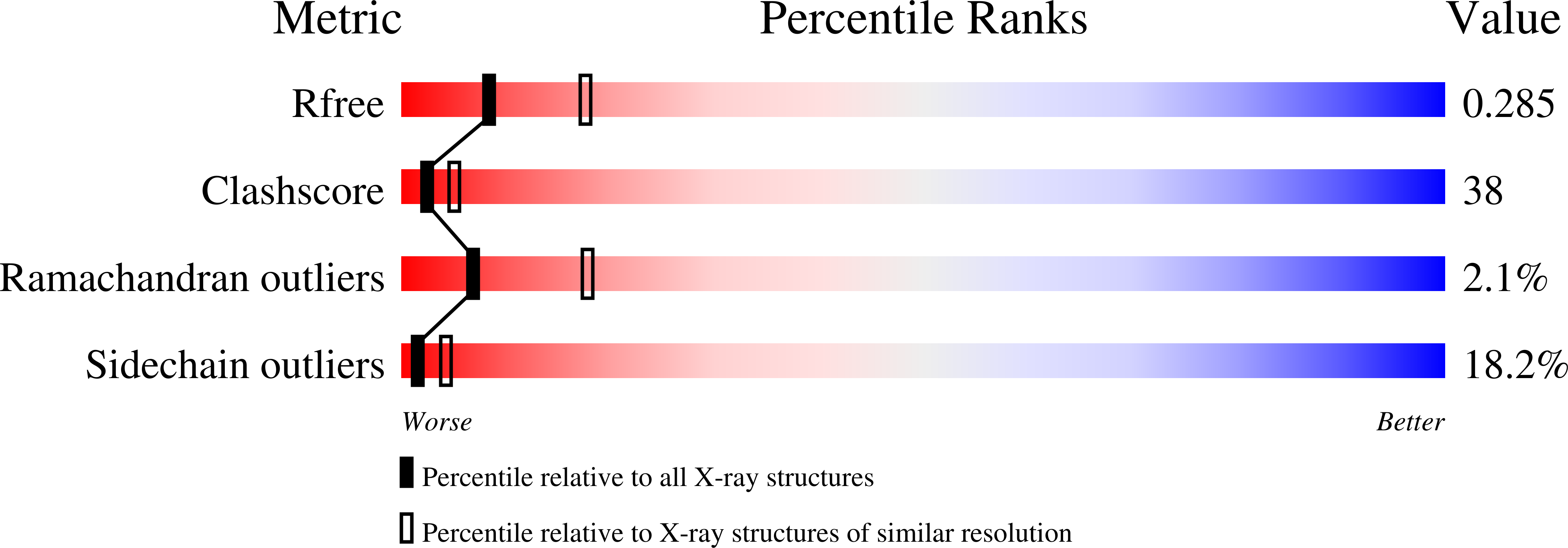Structural Insights Into the Innate Immune Recognition Specificities of L- and H-Ficolins.
Garlatti, V., Belloy, N., Martin, L., Lacroix, M., Matsushita, M., Endo, Y., Fujita, T., Fontecilla-Camps, J.C., Arlaud, G.J., Thielens, N.M., Gaboriaud, C.(2007) EMBO J 26: 623
- PubMed: 17215869
- DOI: https://doi.org/10.1038/sj.emboj.7601500
- Primary Citation of Related Structures:
2J0G, 2J0H, 2J0Y, 2J1G, 2J2P, 2J3F, 2J3G, 2J3O, 2J3U, 2J5Z, 2J60, 2J61, 2J64 - PubMed Abstract:
Innate immunity relies critically upon the ability of a few pattern recognition molecules to sense molecular markers on pathogens, but little is known about these interactions at the atomic level. Human L- and H-ficolins are soluble oligomeric defence proteins with lectin-like activity, assembled from collagen fibers prolonged by fibrinogen-like recognition domains. The X-ray structures of their trimeric recognition domains, alone and in complex with various ligands, have been solved to resolutions up to 1.95 and 1.7 A, respectively. Both domains have three-lobed structures with clefts separating the distal parts of the protomers. Ca(2+) ions are found at sites homologous to those described for tachylectin 5A (TL5A), an invertebrate lectin. Outer binding sites (S1) homologous to the GlcNAc-binding pocket of TL5A are present in the ficolins but show different structures and specificities. In L-ficolin, three additional binding sites (S2-S4) surround the cleft. Together, they define an unpredicted continuous recognition surface able to sense various acetylated and neutral carbohydrate markers in the context of extended polysaccharides such as 1,3-beta-D-glucan, as found on microbial or apoptotic surfaces.
Organizational Affiliation:
Laboratoire de Cristallographie et Cristallogénèse des Protéines, Grenoble, France.



















